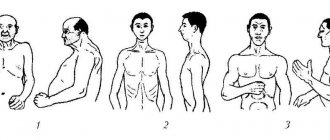What is personality?
A personality is a person who has a unique set of characteristics that determine his character, behavior and characteristics of interaction with other people. In everyday communication, the word “personality” is often used as a synonym for the word “person” or “individual”, but the meaning of these terms is still different.
In addition to the above, there are other definitions of the term “personality”. In particular, it can be used to reflect the social nature of man. That is, when a person is called a person, it is meant that he is part of a certain society and is revealed in social interaction. Sometimes the word “personality” is used to emphasize the moral maturity of a person, his responsibility and a high level of prudence.
All people change over time, sometimes quite dramatically. And if the changes in someone are too noticeable, they sometimes say about him: “He has become a completely different person!” Everyone understands that this is the same person, but these words imply that in communication he has become completely different, and old acquaintances “do not recognize” him.
Based on the foregoing, we can conclude that the concept of “personality” implies a set of psycho-emotional properties of a person , formed under the influence of his life experience and determining his character, tastes, relationships with others, the level of personal and social responsibility, behavior in various life situations and other characteristics.
Thus, the term “personality” is quite multifaceted, but it has two main meanings:
- A set of characteristics of the psyche and behavior, formed on the basis of a person’s self-esteem, as well as on the basis of how he evaluates his life and environment.
- A unique person with his own value system, habits, way of thinking and other individual characteristics.
The term “personality” in Russian is derived from the word “personal” (that is, belonging to a specific person). Sometimes it is also associated with the word “mask” (previously it was the name of a mask or part of a helmet that covers the face). In English and other European languages, the term personality, derived from the Latin word persona (person), is used to denote this concept.
Glossary of terms on the topic _Personality Psychology_
Glossary of terms on the topic: “Personality Psychology”:
Personality
- socio-psychological education, which is formed through a person’s life in society. A person as a social being acquires new (personal) qualities when he enters into relationships with other people and these relationships become “formative” of his personality. Personal characteristics do not include such characteristics of a person that are naturally conditioned and do not depend on his life in society. According to the definition of R.S. Nemov, a personality is a person taken in the system of his psychological characteristics, which are socially conditioned, manifest themselves in social connections and relationships by nature, are stable and determine the moral actions of a person that are of significant importance for himself and those around him.
Human
- this is a generic concept, indicating that a creature belongs to the highest degree of development of living nature - to the human race. The concept of “man” affirms the genetic predetermination of the development of human characteristics and qualities.
Individual
is a single representative of the species “homo sapiens”. As individuals, people differ from each other not only in morphological characteristics (such as height, bodily constitution and eye color), but also in psychological properties (abilities, temperament, emotionality).
Individuality
- this is the unity of the unique personal properties of a particular person. This is the uniqueness of his psychophysiological structure (type of temperament, physical and mental characteristics, intelligence, worldview, life experience).
Statistical structure of personality
- an abstract model abstracted from the actually functioning personality that characterizes the main components of the individual’s psyche.
The basis for identifying personality parameters in its statistical model is the difference between all components of the human psyche according to the degree of their representation in the personality structure. The following components are distinguished: universal properties of the psyche, i.e. common to all people (sensations, perceptions, thinking, emotions); socially specific features, i.e. inherent only to certain groups of people or communities (social attitudes, value orientations); individually unique properties of the psyche, i.e. characterizing individual-typological features that are characteristic only of one or another specific person (temperament, character, abilities). The dynamic structure of personality
fixes the main components in the individual’s psyche, no longer abstracted from the everyday existence of a person, but, on the contrary, only in the immediate context of human life.
Temperament
- an individually unique, naturally determined set of dynamic manifestations of the psyche - intensity, speed, tempo, rhythm of mental processes and states.
temperament types:
Choleric.
Representatives of this type are characterized by increased excitability, and as a result, unbalanced behavior. The choleric person is quick-tempered, aggressive, straightforward in relationships, and energetic in activity. Cholerics are characterized by cyclical work patterns. They devote themselves to their work with all passion and get carried away by it. But their strength is exhausted, their confidence in their abilities has dropped, a depressed mood has set in, and they do nothing. Such cyclicality is one of the consequences of the imbalance of their nervous activity.
Sanguine.
A person with a strong, balanced, mobile nervous system.
He has a quick reaction speed, his actions are deliberate. A sanguine person is cheerful, due to which he is characterized by high resistance to the difficulties of life. He is a productive worker, but only when there are many things that interest him. Otherwise, he becomes lethargic, boring, and distracted. Phlegmatic person.
He is solid, does not waste his efforts: having calculated them, he brings the job to the end.
He is even in relationships, moderately sociable, and does not like to chat in vain. The disadvantages of a phlegmatic person are his inertia and inactivity. He needs time to swing, to concentrate, to switch it to another object, etc. Melancholic.
A person with a weak nervous system, with increased sensitivity even to weak stimuli. He is often sad, depressed, unsure of himself, and anxious; he may experience neurotic disorders.
Character
- this is the originality of mental activity, manifested in the characteristics of an individual’s social behavior and, first of all, in relationships with people, business, and oneself.
Makings of
– these are innate anatomical and physiological characteristics of the brain, nervous system, sensory organs and movement, functional characteristics of the human body, which form the natural basis for the development of his abilities.
Capabilities
- these are individual psychological characteristics that are formed in activity on the basis of inclinations, distinguishing one person from another, on which the success of activity depends
A) General abilities
- these are those that manifest themselves in the same way in various types of human activity (the level of general intellectual development of a person, his learning ability, attentiveness, memory, imagination, speech, manual movements, performance).
B) Special
- these are abilities for certain types of activities, such as musical, linguistic, mathematical.
2
Differences between the concepts of “personality”, “individual” and “individuality”
These three concepts are quite close, and each of them can be used to emphasize that we are talking about a specific person. However, they all differ somewhat in meaning. Let's look at each concept in more detail.
- An individual is simply a unique person, like a character in a movie or story. For example, having met a new neighbor, you still do not know anything about him as a person or individual, but you can already quite identify him as an individual.
- Individuality is a system of psychological and behavioral characteristics of an individual, temperament, and communication style. Simply put, it is a set of qualities that distinguishes him from other people.
- Personality is the inner content of a person, realized in interaction with the outside world. A personality can be called an accomplished person who is unique for a reason, but because he has already formed an internal “core”. Sometimes the concepts of “individuality” and “personality” are identified.
Essentially, every person becomes an individual at the moment of birth. Gradually he grows, a certain character is formed, and individuality appears. As social experience accumulates, norms of morality and morality are formed, and principles of behavior are developed. It is these qualities that make him a person.
When is a personality type formed?
In the first series, researchers tried to figure out how we become individuals with our own individuality, abilities and worldview.
Psychologist Emily Jones tested whether temperament is determined at six months. Children were shown toys that could surprise or frighten them - and the reaction corresponded to the three main types of temperament that psychologists identify in adults: excitable, calm, alert. This may mean that we are already born with a certain type, and it is this that determines our future personality.
Some are naturally more fearful, others are calmer or more active. Parents naturally adapt to their children's characteristics, without always realizing it. These differences arose through evolution: giving the baby what he needs based on his unique personality type. A leisurely baby should be gradually accustomed to new things, but a more active baby should be taken for walks more often and shown different places.
Temperament is how we react to what is happening around us. And personality is formed under the influence of signals that we receive in response from the world around us.
Is it possible to speed up speech development if you talk to your child more? Speech development specialist Michelle Peter conducted an experiment in which they calculated how many words a 1.9-year-old baby says daily and how many words adults say to him. On the first day, the researchers simply recorded the results, and on the second they asked the parents to talk to their son as much as possible at every opportunity.
On the first day, parents said 1.3 thousand words, on the second - about 5% more. The baby spoke about 2.5 thousand words on the first day, and on the second day - already 2.8 thousand. The increase was almost 13%. But the main thing is that the parents exchanged remarks with their son more often, and the volume of dialogues increased by 38%. And this is very important for speech development.
It is adults who can lay the foundation for future academic success from the first years of life. Research conducted recently at Stanford University in California confirmed that the more words a child hears in the first years of life, the larger his vocabulary will be later. And at school this will help him improve his performance. And parents do not need any special knowledge - they just need to talk with their sons and daughters as often as possible.
How well young children control their emotions. Dr Emily Jones decided to test what happens in children's brains when they are told not to give in to temptation. The kids were brought an interesting glow stick, but their mothers forbade them to touch it. At this time, using a brain scanner, the slightest activity of neurons in the prefrontal cortex was recorded: it is this part of the brain that is responsible for behavior, emotions, thoughts, feelings.
Some kids lasted only a few seconds, some even grabbed a toy as soon as the countdown began. They behaved this way not because they were naughty - they simply had not yet developed neural connections that would help them resist and not take the toy.
There were also children who consciously resisted the desire, tried to be distracted and not think about the toy. They lasted 45 seconds. The sensors recorded the activity of the prefrontal cortex in their brains: areas that are responsible for self-control, the reward system and motivation in adults are visible.
In order to develop the ability to control emotions, it is necessary to give freedom of action when the child explores the world around him and learns to manage his own behavior.
Personality structure
Personality is a rather complex system, to structure which psychologists use four levels:
- Lower. Innate mental properties, as well as those determined by age, gender and physiological characteristics.
- Second. Peculiarities of perception, thinking and behavior, formed under the influence of first-level factors.
- Third. Personal experience, including acquired knowledge and skills. The formation of this level depends on social interaction and life experiences.
- Higher. At the highest level are principles, ideals, self-esteem, desires, interests and other “personal” things. It is this level that determines the inner content of a person.
At each level you can find unique features that characterize a specific person. The ability to distinguish between them and the personal qualities associated with them is a very useful skill, having mastered which, you can learn to better understand your loved ones and yourself.
Life crises affecting personality development
Some theories of personality development emphasize that adulthood and aging are periods of change and transformation of previous life patterns. These changes are thought to occur in the context of social status and are influenced by family, workplace and society as a whole.
Society sets standard boundaries and expectations for a growing person, which provokes various psychological crises.
For example, an adult is expected to play the role of a productive member of society: enroll in a university, and then get an official job. The situation goes beyond when a girl decides to get married and gets pregnant, and the guy prefers remote work, and even evades taxes. Failure to develop productive self-esteem and meet expectations leads to feelings of stagnation and disrupted worldview. Thus, young mothers on maternity leave have a decrease in self-esteem, they lose a sense of significance (although they are extremely significant for their child).
The age range from 28 to 33 years represents the transition between the period of entry into the adult world and the next period of settling. This transition provides an opportunity to adjust and enrich the temporary structure of adult life that he previously created.
For most men, moderate to severe crises are common. Divorces and career changes are common at this time.
This is followed by a period of calm, which begins in the early 30s and continues until about 40 years of age. This period during which the primary task is to become a full-fledged adult, to ensure stability and security for yourself and your loved ones. A person takes on deeper obligations to his profession and family. In addition, he often focuses on his goals, engages in long-term planning and achieves results.
Most men focus on a key life event, such as a promotion, for the ultimate social affirmation. The priority is independence and authority.
The midlife transition period lasts from four to six years, peaking in the early 40s. It forms the link between early and middle adulthood and represents the meeting of the past and the future.
During this period, the main task is to work and partially resolve the discrepancy between what is and what could be.
The period of entry into middle adulthood begins at approximately 45 years of age and continues until approximately 50 years of age. The transition to a mature personality is usually accompanied by significant upheavals. Sometimes accompanied by a significant life event, such as a job change, divorce or love affair.
In adulthood, there is a crisis regarding the sense of ego integrity versus the sense of despair. At this stage, people realize that they are approaching the end of their lives. If they have successfully completed the previous stages of development, they will be satisfied that they have lived a full, fulfilling life. People who lack integrity in life often experience a sense of despair over “lost” opportunities.











